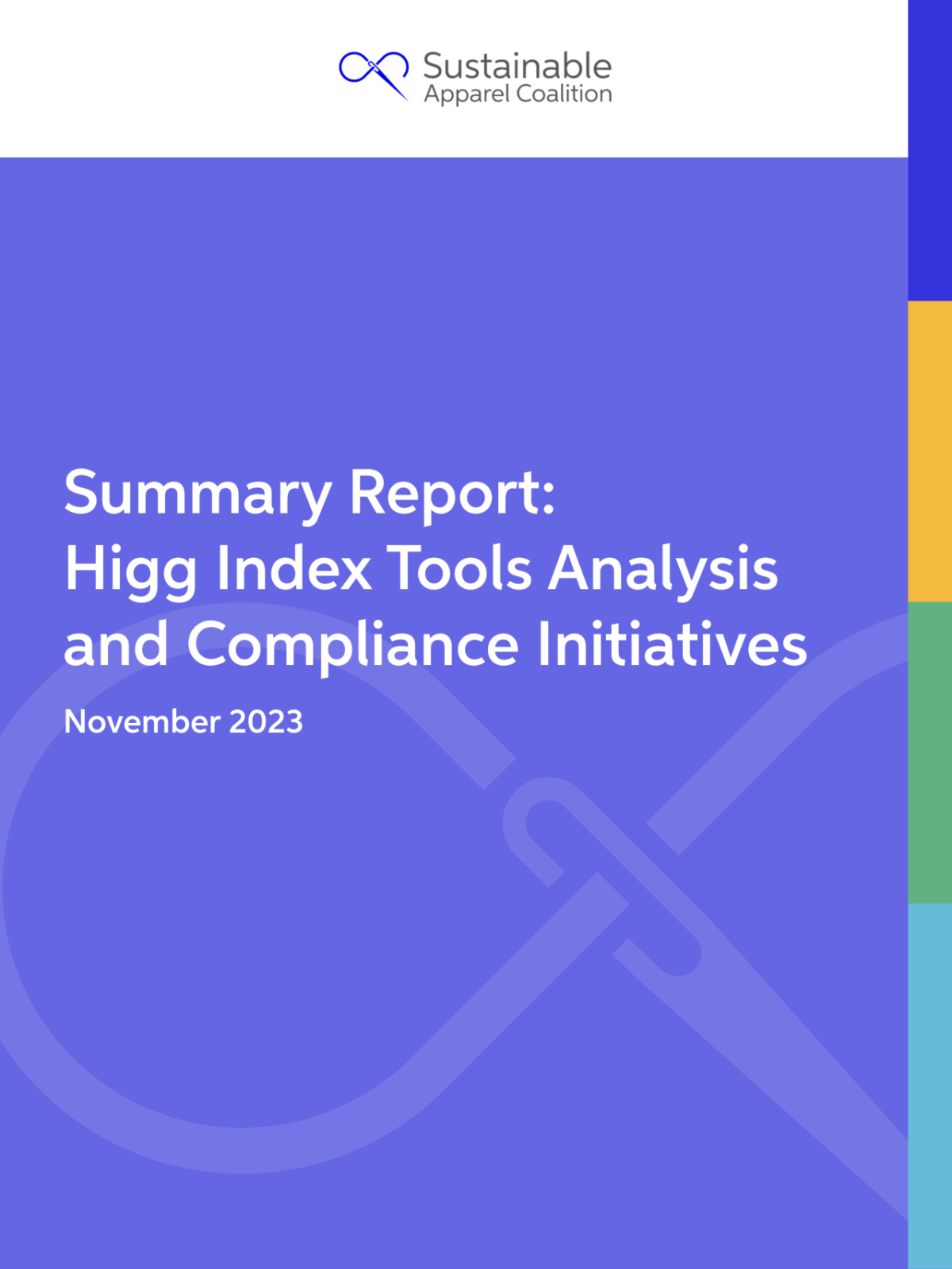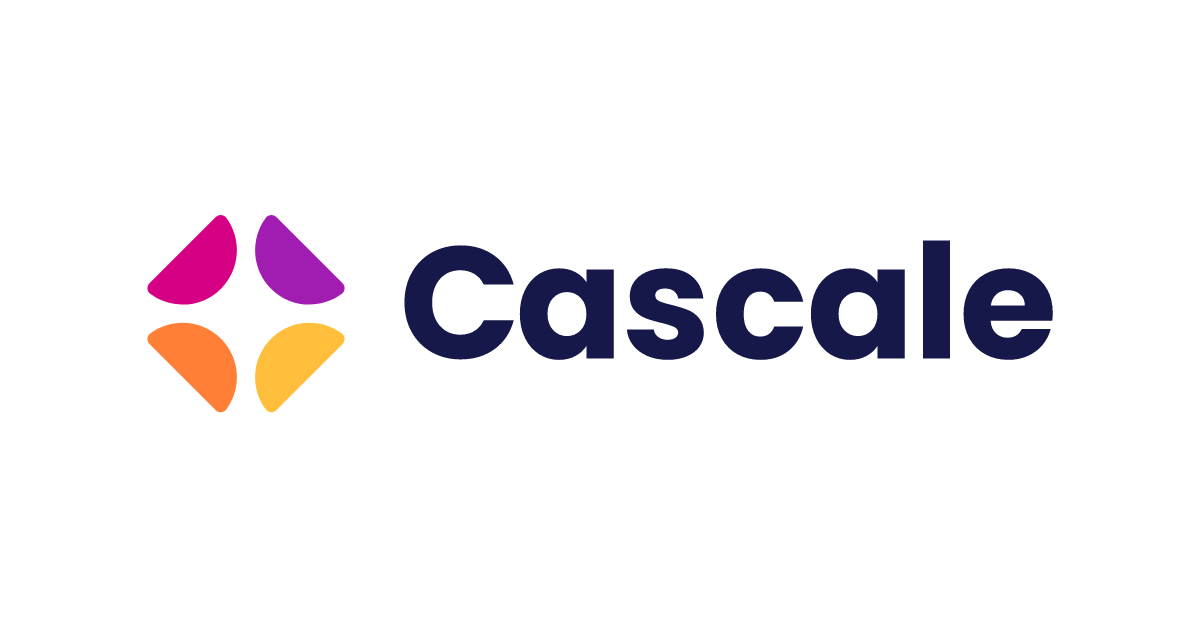Sustainable Apparel Coalition Issues Summary on the Higg Index Tools Analysis and Compliance Initiatives

Developed in partnership with the Global Fashion Agenda, the Sustainable Apparel Coalition has developed a Higg Index Tools Analysis and Compliance Initiatives Summary Report, which is now available to the public.
In collaboration with professional consultancies and partners, the SAC initiated analyses of the Higg Index tools in relation to relevant existing and upcoming EU and national (European) legislation. The summary provides key messages and main outcomes of the analysis, along with proposed next steps.
As part of this process, the SAC developed an overview for members explaining how relevant European legislation is applicable to the requirements of the Higg Index tools. It intends to map out the complex and rapidly evolving policy landscape, and support members in their compliance work with their own legal and compliance teams.
The initial analysis considered factors such as corporate sustainability due diligence and corporate sustainability reporting and was intended to assess to what extent the Higg Index tools can assist members in their compliance efforts, where appropriate. The SAC is also collaborating with Worldly, an impact intelligence platform that hosts and supports leading industry solutions including the SAC's Higg Index tools, to deliver a white paper that comprehensively outlines how brands can use the tools to prepare for compliance with the European Corporate Sustainability Reporting Directive (CSRD), in particular.
Key messages of the summary include:
- The Higg Index tools are periodically updated to proactively address the increasing demands raised by legislation for transparency and disclosure. While they were not originally intended to align with regulations or support regulatory compliance, the Higg Index tools can and, increasingly, will provide insights and data that can support members’ compliance efforts. The Higg Brand & Retail Module (BRM) stands as a good example, being well aligned with the EU Corporate Sustainability Reporting Directive (CSRD) requirements.
- With the final sector-specific standards expected soon, the SAC will further align the Higg BRM to the regulatory reporting requirements therein. With regard to the Corporate Sustainability Due Diligence Directive (CSDDD), the assessment confirmed that the Higg BRM was not designed as a due diligence tool, and therefore cannot be used, on its own, as a comprehensive due diligence tool. However, while the Higg BRM will undoubtedly have a role to play in a due diligence process, such a process goes beyond the scope of a single self-assessment survey such as the Higg BRM.
- The SAC will work together with partners and key stakeholders to develop and support innovative projects such as an OECD-aligned Human Rights and Environmental Due Diligence (HREDD) framework. Among others, the SAC will collaborate with Worldly and Fair Wear to deliver resources and guidance to help brands and other industry stakeholders understand, navigate, and implement impactful human rights due diligence. By working together, these groups aim to drive industry alignment, raise the bar for human rights, and reduce negative impacts on the environment and nature across global garment supply chains. The SAC will also explore more formally how the organization can facilitate members and the industry in meeting future regulatory obligations.
- The SAC has developed an overview of relevant European legislation for SAC members that is applicable to the questions and requirements of the Higg Brand and Retailer Module (BRM), Higg Product Module (PM) and Higg Materials Sustainability Index (MSI), Higg Facility Environmental Module (FEM) and Higg Facility Social & Labor Module (FSLM). This overview is set to be published by the end of the year and will be made available for members only, as the resource is intended to aid members in their ongoing compliance work alongside their own legal teams.
- The SAC actively advocates and collaborates with policymakers, emphasizing the importance of ensuring that its tools remain relevant and in line with the most current sustainability standards and legislation. The SAC works towards ensuring that its expertise is integrated effectively into the legislative and regulatory processes - in the context of and beyond its role in facilitating the PEF Technical Secretariat for Textiles and Footwear. The Higg Product Module (PM) and Higg Materials Sustainability Index (MSI) particularly stand as strong opportunities for advocating this crucial alignment, e.g. in the context of the Substantiating Green Claims Directive, as well as the Delegated Act on Textiles for the Ecodesign for Sustainable Products Regulation (ESPR).
As the Higg Index tools touch upon many aspects included in the regulatory and reporting obligations, the purpose of the collaborative work is to keep abreast of the latest key regulatory developments. This helps in considering potential refinements to the Higg Index tools in the future. Relevant legislation is constantly changing, and many pieces of legislation have yet to be finalized. Hence, the analysis will be conducted continuously, so the Higg Index tools ceaselessly meet the evolving expectations and needs of members and users.

